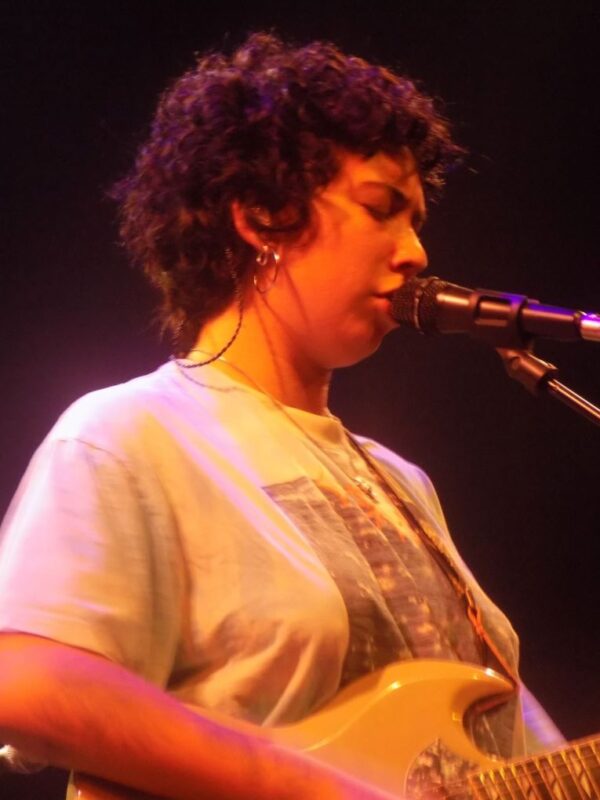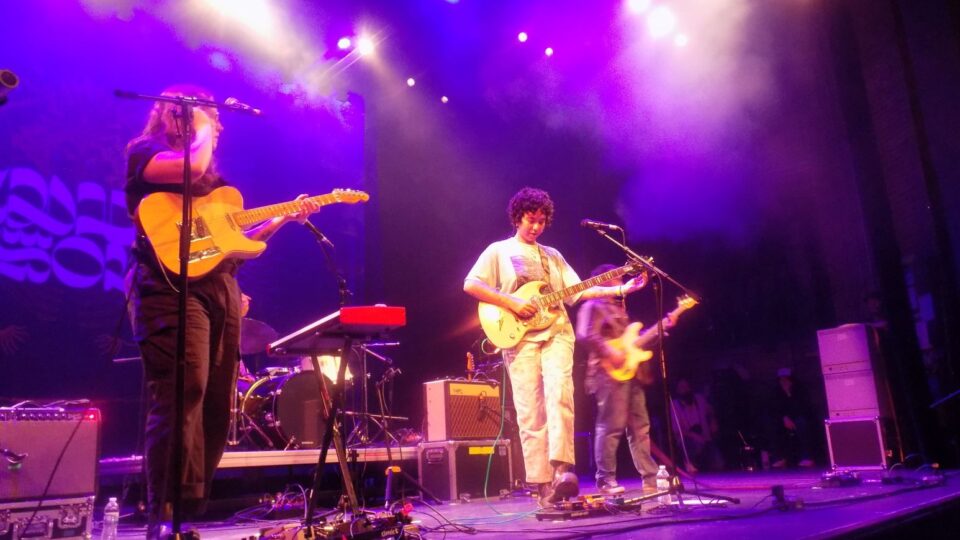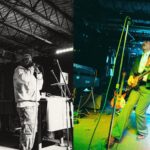During a lively Friday afternoon on Day 2 of the Mission Creek Festival, indie pop musician and singer-songwriter Indigo De Souza graced the stage of the Englert Theater with a motley of songs from her discography that left the crowd blushing. A lot of the tracks in her set correlated to one’s feelings of their teenage years. In my case for instance, the songs “Kill Me” and “Always” are such tracks that have followed me since the high school chapter of my life. The day of De Souza’s concert was only a few days before my birthday where I would turn 20, leaving behind a large aspect of my youth. I could tell just from being in the pit with the rest of the audience that we were all in similar stages in life, between being a child and an adult.
Here we all shared this common appreciation for De Souza and her music, which best summarizes and encapsulates this feeling of growing up. In other songs of hers like “You Can be Mean” and “How I Get Myself Killed” she sings about the complexities and complications of the processes of moving through phases in life, when one is not yet exactly sure who they are or what they want. Further tracks along the setlist like “Take Off Ur Pants” and “Younger & Dumber” are tracks that embody sensations of what it means to look back on past encounters. These experiences along the seams of things that turned out as they were either inevitably or unexpectedly, become memories that follow you for the rest of your life.

Within this hemisphere of wistful and dewy-eyed tonalities, the music’s live ambiance left the onlookers maudlin with acceptance to whatever may come our way within this venture of maturity. What De Souza tells us through this show is that everything will be okay, and that one must only hold on until the very point of when things will eventually get better. The show left the crowd with a sense of reassurance and comfort, beyond what other things may be able to offer. It left many with a newly found sense of hope for what’s to happen in the future, and provides us with a determination to go on with our lives, with a form of insight that is welcoming to refreshing prospects. They are particularly signifiers of one’s openness to learning more about the world and the rest of yourself.
De Souza’s performance was intimate, closely-knitted, and aligned to its listeners, making a musically ascribed language commence between herself and the audience. The performer and listener meet at a common point of understanding for each other that says “I have been there,” and “I get it.” This confides in the listener that they are not alone. This energy is one that shares secrets amongst the crowd, through the unspoken translation of feelings, emotions, and thoughts that is conveyed through Indigo De Souza being homesick for a tomorrow that is waiting, if not itching, to transpire.




